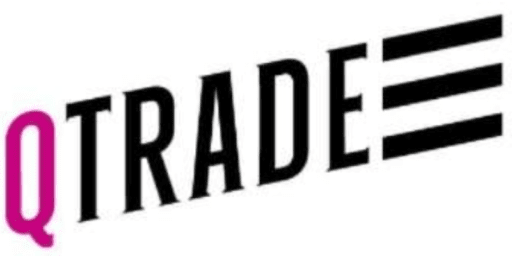Nest Wealth Review 2026
Nest Wealth Review
-
Annual Account Fees
-
MER Commissions
-
Account Features
-
Customer Service
-
Platform User Experience
-
Overall Banking Convenience
Nest Wealth Review Summary:
Nest Wealth is a Canadian robo advising pioneer, established in 2014. Since then they have served thousands of investors, including individual investors, institutional investors, and financial advisors. The platform focuses on delivering innovative and personalized services at an affordable cost.
One notable feature of Nest Wealth is that it has no minimum balance requirement, setting it apart from many other robo-advisors in Canada. However, your account will not be invested into a customized ETF portfolio until you have at least $20,000.
It’s also important to note that its fees are generally higher compared to our top recommended Canadian robo-advisor, Justwealth, unless you have a very large portfolio.
In this updated review of Nest Wealth, we will see how it compares to other robo-advisors in Canada, taking into consideration how it operates, the fees involved, the portfolio options available, and more.
Pros
- Quick and easy to open an account
- Easy to understand and transparent fee structure
- A selection of 7 excellent ETFs
- Unlimited support from a portfolio manager
Cons
- Nest Wealth fees are a worse value for smaller accounts
- Fees are not all-inclusive
- Minimum $20,000 before money is invested in a customized ETF portfolio
- Fewer available ETFs than some competitors
- No socially responsible investment options
- No mobile app
What is Nest Wealth?
In late January 2024, the digital finance company Nest Wealth was acquired by Objectway of Italy. Not much seems to have changed with this new acquisition. Nest Wealth was founded in 2014 with the goal of providing “digital wealth solutions for everyone.” In the case of Nest Wealth, “everyone” includes not only individual investors like you or me, but also:
- Financial institutions
- Financial advisors and planners
- Employers who operate group RRSPs and more
Nest Wealth’s choice to focus on multiple niches is a double-edged sword. It means that individual investors don’t get the level of options and flexibility that they would from other robo-advisors like Justwealth or Wealthsimple.
Nest Wealth’s services for individual investors is called Nest Wealth Direct, and this is what we will be focusing on in this article.
By the end of this article, you should have a solid picture of what Nest Wealth can do for you and your investments.
How Nest Wealth Works
Nest Wealth is based on passive investing. Rather than having you make trades yourself, Nest Wealth does the investing for you based on your personal preferences. You don’t need to be an expert to invest successfully – that’s one reason why we love robo-advisors.
To open an account with Nest Wealth, you’ll need:
- Your SIN
- An image of your government-issued photo ID
- An image of a void cheque or online banking login information
- Optional: a statement for any existing investment account (s) that you would like to transfer to Nest Wealth
You’ll also complete a couple of questionnaires that determine your financial goals and level of risk tolerance. The entire process should take no more than 10 minutes.
Once you submit your information, Nest Wealth will review your answers and open an account for you within a couple of business days. A portfolio manager is available to answer any questions by phone, text, or email.
You can move money into your Nest Wealth account in several ways:
- Directly from your bank account
- Via a cash deposit
- By transferring funds from another brokerage firm
The portfolio that Nest Wealth creates for you will be tailored to your specific financial goals and attitudes towards risk. If you want to earn income quickly and don’t mind a fair amount of risk, your portfolio will look very different from the one they’ll give you if you’re risk-averse and looking for somewhere to grow your money slowly and steadily.
Nest Wealth Review: Fees
Nestwealth’s fees are very competitive overall when compared to the best robo advisors out there. You can read our direct comparison to Justwealth further down this page and see exactly how they differ.
If you are the tl;dr type, then we can sum it all up by saying Justwealth is a better deal for smaller accounts, while the fee structure at Nest Wealth accommodates larger accounts ($325,000 and beyond) much better.
Nest Wealth Annual Fees
Unlike most robo-advisors, which charge a percentage-based commission, Nest Wealth charges a flat monthly fee based on your account balance:
- Accounts under $10,000 pay a minimum of $5/month ($60/year)
- $10,000-$75,000 pay $25/month ($300/year)
- $75,000-$100,000 pay $50/month ($600/year)
- $150,000 to $325,000 pay $100/month ($1,200/year)
- Accounts over $325,000 pay $150/month ($1,800/year)
The tiered pricing model can translate to some major, and not always favourable, differences in cost. While accounts over $325,000 can see impressive discounts vs typical robo-advisor fees, smaller accounts end up paying more with Nest Wealth than they would with a percentage-based fee.
Nest Wealth’s fee structure also rewards investors at the upper end of each range. Say you have $76,000 – your $50/month fee would represent more of your total holdings than it would for someone with $99,000.
There are also custodial fees when you open an account through Nest Wealth. This fee will be discussed during account opening.
Trading Fees
When Nest Wealth makes trades to rebalance your portfolio, you’ll incur a trading fee of up to $9.99 per trade.
These fees are added to the monthly fee and are capped at $100 annually per account – but considering that many Canadians have RRSPs, RESPs, and TFSAs, as well as a non-registered investment account, this can add up quickly.
ETF MERs
Finally, ETF management fees aren’t included in the tiered fee structure. These are charged directly by the providers and generally average 0.13% across all robo-advisors.
Nest Wealth’s passive ETFs MERs range from 0.06% to 0.37%.
Account Minimums
While there is no minimum to open or fund an account, your money will not be invested until you reach a certain balance. Nest Wealth calls these “investment minimums”:
- Less than $1000 = your account sits in cash
- $1000 to $19,999 = your account will be invested in a one-ticket solution
- Over $20,000 = your account will be invested in a customized ETF portfolio
Nest Wealth Review: Customized Portfolios
Nest Wealth invests your money in ETFs, or Exchange Traded Funds. ETFs are globally diversified, low-cost, and well-balanced collections of investments that make it easy to invest without the added responsibility of picking and choosing stocks yourself.
Nest Wealth offers 7 ETFs representing a range of asset classes. These funds are:
1. Vanguard Canadian Short-term Bond Index ETF (VSB)—MER 0.11%
This fund is suited for investors with a lower risk tolerance. It tracks the Canadian government short term bonds, which are less likely to be volatile.
2. BMO Aggregate Bond Index ETF (ZAG)—MER 0.09%
This could be another good choice for those with a low risk tolerance, as it tracks Canadian government medium term bonds. While the risk is a bit higher than a short-term bond index, so is your chance of earning a higher yield.
3. iShares Canadian Real Return Bond Index ETF (XRB)—MER 0.39%
This ETF is for those that want to invest in something that could help hedge against inflation.
4. iShares Core S&P/TSX Capped Composite Index ETF (XIC)—MER 0.05%
If you have a higher appetite for risk, this could be a good choice. This ETF will give you wide exposure to a variety of Canadian equities.
5. iShares Core S&P 500 Index ETF (CAD-Hedged) (XSP)—MER 0.10%
If you want exposure to the US market, this ETF is a great choice. It tracks the top 500 performing companies in the US, and is a great way to diversify your portfolio.
6. iShares MSCI EAFE ETF (IEFA)—MER 0.08%
Another great ETF for diversification, this one gives you access to a range of securities from Europe, Australia and the Far East.
7. Vanguard REIT ETF (VNQ)—MER 0.12%
For those that want to invest in US real estate without having to physically own and manage properties internationally, this ETF is a great option. An added benefit of REITs is they can offer you a solid income in the long run.
Nest Wealth will build a personalized portfolio out of these ETFs that match your risk tolerance and financial goals. As the markets change, they’ll rebalance your portfolio automatically to make sure that it remains a good fit for your preferences.
We’re big fans of ETFs, but a selection of 7 isn’t particularly impressive. Many robo-advisors invest in 10 or more. We also like to see some socially responsible investment options. Nest Wealth doesn’t offer any, which is unfortunate.
The downside of a robo-advisor like Nest Wealth is that you can’t dictate any part of your portfolio selections. With a portfolio exclusively made of ETFs, you’ll miss out on some investments that can provide excellent returns.
To learn more about our top ETF picks, check out our article on the 45 Best ETFs in Canada and the Best All-in-One ETFs in Canada.
If you want to take advantage of the potential for income growth that dividend stocks offer, for example, you’ll have to look elsewhere (you can check out our article about the Best Canadian Dividend Stocks and the Best Canadian Dividend ETFs for more information)
That being said, Nest Wealth and other robo-advisors allow you to invest your money even if you know absolutely nothing about the stock market. It’s perfect for someone who’s just starting out or who doesn’t want to go down the rabbit hole of learning the ins and outs of investing (and if you do want to learn, we’ve got articles that can help you out!).
Nest Wealth Account Options
Nest Wealth offers a variety of investment account options. These include the most common investment accounts:
- Registered Retirement Savings Plans (RRSPs)
- Registered Education Savings Plans (RESPs)
- Tax-Free Savings Accounts (TFSAs)
But also include other options such as:
- LIRA
- RRIF
- Joint Ownership Account
- Corporate Account
- Trust Account
- Cash Account
Note: Nest Wealth does not offer a Registered Disabilities Savings Plan (RDSP) or First Home Savings Accounts (FHSA).
Nest Wealth Features and Ease of Use
We’ve already discussed how easy it is to begin investing with Nest Wealth. Once you’re all set up, here are some of the features Nest Wealth offers:
Bank-level security
Nest Wealth uses bank-level security encryption to keep your information safe. Your money is held by a third-party custodian institution that’s a member of the Investment Industry Regulatory Organization of Canada (IIROC) and the Canadian Investor Protection Fund (CIPF).
This means that securities in your account are protected up to $1,000,000 through one of the custodians (NBIN Inc or Fidelity Clearing Canada), should they go insolvent.
In addition, Nest Wealth is regulated by the Ontario Securities Commission, which is mandated to protect consumers.
Unlimited Support
Nest Wealth accounts are managed by experienced portfolio managers. Account holders can consult with the Nest Wealth team by phone, text, or email.
Automatic Rebalancing
If the market changes and your portfolio no longer matches your needs, Nest Wealth will automatically rebalance it and bring it back into line with your stated goals.
Nest Wealth Mobile App Review
One area in which Nest Wealth falls far below other robo-advisors is mobile apps. Nest Wealth doesn’t have a mobile app at all. It’s an odd choice for a digital finance company that claims to be a leader in technology, but it’s a fact.
I suggest you read our article about the best stock trading apps in Canada if using your mobile phone while trading is a priority for you.
Nest Wealth vs Justwealth
Whenever we review a robo-advisor like Nest Wealth, we like to see how it compares to our most recommended robo-advisor, Justwealth.
Nest Wealth and Justwealth share some great features:
- They’re easy to apply for
- They offer a range of investment accounts
- They customize an ETF portfolio based on your preferences and goals
- They provide unlimited support and advice.
We’ve put together a table for a quick comparison of some of their differences:
Nest Wealth | Justwealth | |
Number of ETFs Available | 7 ETFs that represent 7 different asset classes | 50 ETFs from 9 different providers which result in over 80 portfolios |
Personalized Financial Advisor | No | Yes |
5-year returns (balanced portfolio) | 6.10% | 8.48% |
Company Management Fee | $5 to $150/month (depending on account size) | 0.40%-0.50% |
MER | 0.06% to 0.37% | 0.15% to 0.25% |
SRI Options Available | No | Yes |
Target-Date RESP Funds | No | Yes |
Account Minimum | $0 Account Minimum, but has “investment minimums”. Under $1000: account sits in cash $1000 – $19,000: account invested in one ticket solution Over $20,000: account invested in custom ETF portfolio | $5,000 (although there are exceptions for RESP and FHSA accounts) |
Promo | No Available Promo | $100-$500 Instant Cash Back |
Sign Up |
Fee structure: Justwealth charges a fee of 0.55% – 0.75% on all accounts (management fee of 0.40% – 0.50% and ETF fee of 0.15% – 0.25%), while Nest Wealth charges a flat fee of between $5 and $150 a month depending on the account size, plus ETF fees.
We found that Justwealth’s fee structure provides better value for accounts under $325,000. If you have a higher balance than that, Nest Wealth’s fees are a better deal.
Account minimums: Nest Wealth has “investment minimums”. If you have less than $1000, your account sits in cash. Between $1000 to $19,999 your account will be invested in a one ticket solution.
Once you have over $20,000 then your account will be invested in a Nest Wealth customised ETF portfolio. Justwealth has an account minimum of $5000, although there are exceptions for RESP and FHSA accounts.
ETF options: Nest Wealth has a selection of 7 ETFs to choose from. Meanwhile, Justwealth has around 50 ETFs to create over 80 different portfolios to grow wealth, generate income, or preserve wealth. Justwealth also offers socially responsible investing (SRI) options so that investors can align their money with their morals.
Range of services and accounts: Nest Wealth Direct offers its individual investors robo-advising only. Justwealth is also focused on robo-advising, but offers its clients more account options including target-date RESPs, and most notably, a personally dedicated financial advisor.
Mobile App: Justwealth has an app released in late 2023. It isn’t fancy but given its 5-star rating on the Apple App Store, we know it is highly functional. If we could make one recommendation for Nest Wealth it would be to develop an app. Not having one is a serious downside and is shockingly surprising for the year 2024.
Our conclusion: while Nest Wealth is a good robo-advisor, it’s lacking in several areas compared to industry leaders. Justwealth is our favourite for a reason, and for the everyday investor, it’s still unparalleled. It also currently has a generous sign up bonus. You can read all about Justwealth and why we love it in our Justwealth Review.
Nest Wealth Review : FAQ
Nest Wealth Review: Our Verdict
Nest Wealth certainly has its strengths, such as a variety of account types, service from experienced advisors, and an easy process for creating a portfolio tailored to your investment goals and style.
However, there are notable drawbacks. The multiple fees can accumulate, particularly for accounts under $325,000. This is not ideal for those starting their investment journey. This issue is compounded by the fact that your money is not invested into a customized ETF portfolio until you have a minimum of $20,000 invested. Additionally, the lack of a mobile app is a significant downside in today’s digital landscape.
Overall it makes more financial sense to choose Justwealth as your Canadian robo-advisor. With its excellent mobile platform, additional account types, lower financial commitment to getting started, and personally dedicated advisors, it clearly outperforms Nest Wealth.










